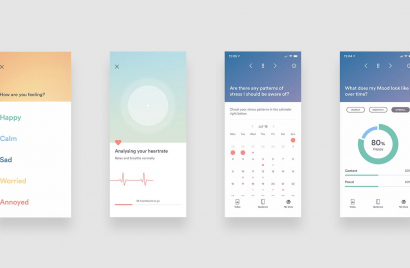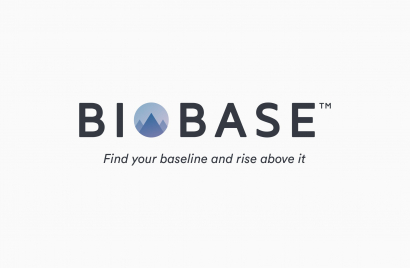
Dreamies investigation proves that the treats are irresistible to cats
The campaign by Adam&EveDDB concludes that the only cats who don’t love the pet treat are human Cats

AI and app development have seen the creation of thousands of tools in helping people to de-stress. But whilst there are countless technologies, are they really listening? Are they teaching us anything?

The rise of smart-phone, automated and AI technology in the last few decades has been exponential: 'the world is connected'. We are inundated with things that make our lives better, more enjoyable and easier to communicate, regardless of where you are in the world. Yet as a society we are showing growing signs of increased disconnection.
We find ourselves often overstimulated by technology, living in a high-speed, modern life, full of distraction. 'Always on' is tiresome and inhuman. Your mind is never rested, the body isn't given time to recover, so you're always stressed. So, is it any surprise that we've found ourselves in a world where mental health issues are on the ever-increasing rise and personal and work-related stress is becoming a growing epidemic?
The good news is, slowly but surely our culture is opening up about mental health issues, and not just about clinical ailments. The current climate posits that everyone can benefit from paying attention to their mental health and fostering better wellbeing. Additionally, brands are assuming responsibility by talking about these issues alongside influencers and an audience now much more open to social and human issues.
Stress, anxiety and depression are all extremely confusing, unforgiving and complex issues that take more than a few breathing exercises or meditation cycles to fully understand. It can take years for people to fully cope with and understand personal stress and mental health. Sadly, some never do.
AI and app development have seen the creation of thousands of tools in helping people to de-stress. But whilst there are countless technologies, are they really listening? Are they teaching us anything?
Biobeats’ conception began with taking a comprehensive look into what causes stress and how it affects us physically. At one-point, stress almost cost David Plans the founder of Biobeats, his life. His action to do something through technology, science and music to change the world and how we talk about and deal with mental health issues is fascinating.
Biobeats is built on data, the idea that the more data retrieved, the more scientific patterns in mental and physical health can be found. In turn, these can be used to improve their digital tools so they can help not just the individual, but the workforce, the community, the world to understand, cope with and control their wellbeing.
We helped Biobeats to design Biobase, an app that provides a way for users to gain an increasing understanding of their stress and ways to cope with, reduce and control it, in an easily digestible format. It’s a wellbeing app with accountability. It doesn't just give you coping mechanisms, mindfulness exercises and coaching, but also shows you your stress and your improvement. It helps you to understand you, which when dealing with something like anxiety is the most difficult thing to get to grips with. We wanted people to understand why and then rise above it, up 'out of the darkness'.
The strategy for the app was not to 'gamify' or cause further distraction but to create a daily habit whereby the user is gaining real value and understanding of their mental health. Once a habit is developed through the app, the more people use it, the more Biobeats can retrieve consistent and trusted data to put back into research and development, meaning every user is part of the betterment of wellbeing.
The UX strategy for the app was simple; make the sun rise through usage of key exercise cards each day. This was born out of the Biobase brand message and strapline "Find your baseline and rise above it." What was successful about this was that it linked the purpose of the brand and product with the user requirement. It took science, AI technology and sometimes 'over-explanation' and simplified it into something supportive, warm and most importantly, human.
Biobase has been successfully piloted through work-place programs in large scale companies across the world and looks to fully launch B2B worldwide in 2019 and hopefully B2C beyond that.


Looks like you need to create a Creativebrief account to perform this action.
Create account Sign inLooks like you need to create a Creativebrief account to perform this action.
Create account Sign in